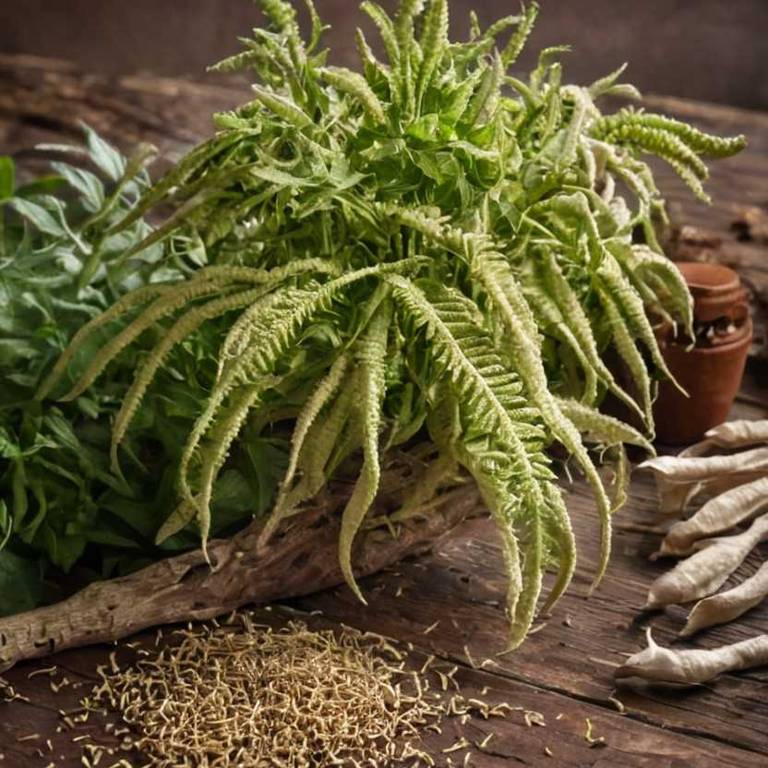Mexican Spinach (Amaranthus hypochondriacus)
Mexican Spinach (Amaranthus hypochondriacus) is a member of the Amaranthaceae family, native to Central America, Northern South America, and The Caribbean. Traditionally, its leaves, seeds, and stems have been used for decoctions, infusions, and culinary uses.
This herb is particularly valued for its tonic, anti-inflammatory, and diuretic actions, and has a long history of use in native american herbal medicine, european herbal medicine, and traditional chinese medicine.

Quick Facts / Key Information
| Common Name | Mexican Spinach |
|---|---|
| Scientific Name | Amaranthus hypochondriacus |
| Plant Family | Amaranthaceae |
| Genus | Amaranthus |
| Species | hypochondriacus |
| Native Range | Central America, Northern South America, The Caribbean |
| Plant Parts Used | Leaves, Seeds, Stems |
| Primary Medicinal Actions | Tonic, Anti-Inflammatory, Diuretic |
| Primary Traditional Systems | Native American Herbal Medicine, European Herbal Medicine, Traditional Chinese Medicine |
| Historical Preparation Methods | Decoction, Infusion, Culinary Use |
Botanical Identity
- Scientific Name
- Amaranthus hypochondriacus
- Common Name
- Mexican Spinach
- Synonyms / Alternative Names
- Red Amaranth, Red Amaranth, Lovegrass
- Plant Family
- Amaranthaceae
- Genus
- Amaranthus
Botanical Description
- Growth Habit
- Perennial herbaceous plant.
- Height
- It typically grows to a height of 1 to 2 meters.
- Leaves
- Simple leaves with smooth margins, upper surface glaucous green, lower surface pale green, and prominent stomatal bands along the midrib.
- Flowers
- Inflorescences are spike-like clusters with actinomorphic flowers having five pink to red petals and five green sepals, each with a distinct midvein.
- Stems
- Erect, branched, herbaceous stems with opposite leaves and smooth, glabrous surfaces.
Traditional Uses / Historical Use
Traditional Systems
- Native American Herbal Medicine
- European Herbal Medicine
Historical Preparation Methods
- Decoction
- Infusion
- Culinary Use
- Poultice
Medicinal Actions
- Tonic
- As described in traditional systems, a cooling tonic, for foundational support.
- Anti-inflammatory
- In herbal literature, noted as a soothing anti-inflammatory, in tissue-soothing contexts.
- Diuretic
- Traditionally described as a mild diuretic, for elimination-focused applications.
- Astringent
- Historically regarded as a moderate astringent, for surface-level applications.
Active Compounds
- Flavonoid
- Naturally occurring polyphenols that contribute to pigmentation and structural chemistry.
- Phenolic Acid
- A class of aromatic plant compounds commonly found in leaves, seeds, and stems.
- Anthocyanin
- Pigment molecules widely distributed in colored plant tissues.
- Tannin
- Naturally occurring polyphenols widely distributed in woody and leafy plant parts.
Modern Research Overview
Contemporary research on this plant includes areas such as chemical analysis, laboratory-based studies, and observational research. Detailed summaries of published findings are not included at this stage and will be added during future content updates.
Safety & Contraindications
- General Precautions
- The use of this herb may warrant general caution in certain situations.
- Contraindications
- Contraindications for this herb are not clearly established in available sources.
- Allergies
- Allergic reactions associated with this herb have not been well documented.
- Drug Interactions
- Available information regarding interactions with pharmaceutical drugs is limited.
- Toxicity
- The toxicity profile of this herb has not been clearly established.
- Pregnancy & Breastfeeding
- Information addressing pregnancy and breastfeeding-related safety for this herb is limited.
Preparation & Usage Methods
- Infusion
- Water is poured over plant material and allowed to steep before straining.
- Decoction
- Decoctions are made by heating plant material in water for an extended time.
- Poultice
- This method uses direct contact between plant material and the skin.
- Culinary Use
- Leaves, flowers, or roots are used as ingredients in culinary preparations.
- Powder
- Plant parts are dried and mechanically reduced to a powdered form.
Growing, Harvesting & Storage
Growing / Cultivation
- Soil
- Prefers loamy soil with well-drained conditions. Typically grows best in organically rich soils.
- Sunlight
- Thrives in full sun. Tolerates full sun to partial shade.
- Watering
- Prefers well-balanced moisture levels. Tolerates periodic dry conditions.
Medical Disclaimer
The information provided on this page is for educational and informational purposes only. It is not intended to diagnose, treat, cure, or prevent any medical condition. Always consult a qualified healthcare professional before using any herb for medicinal purposes.